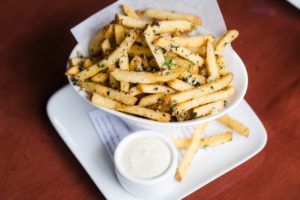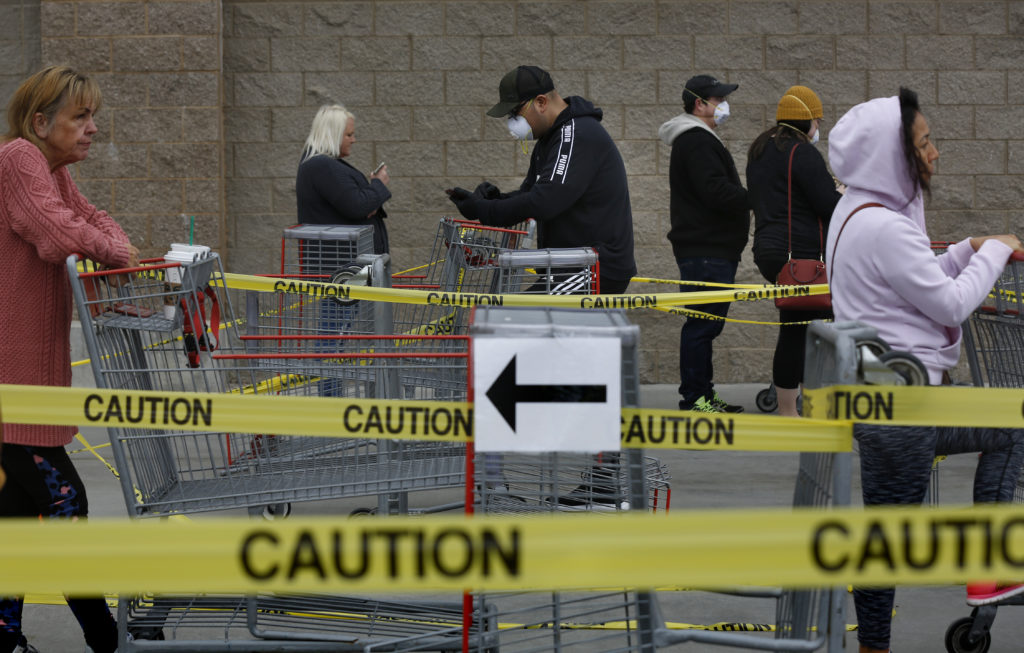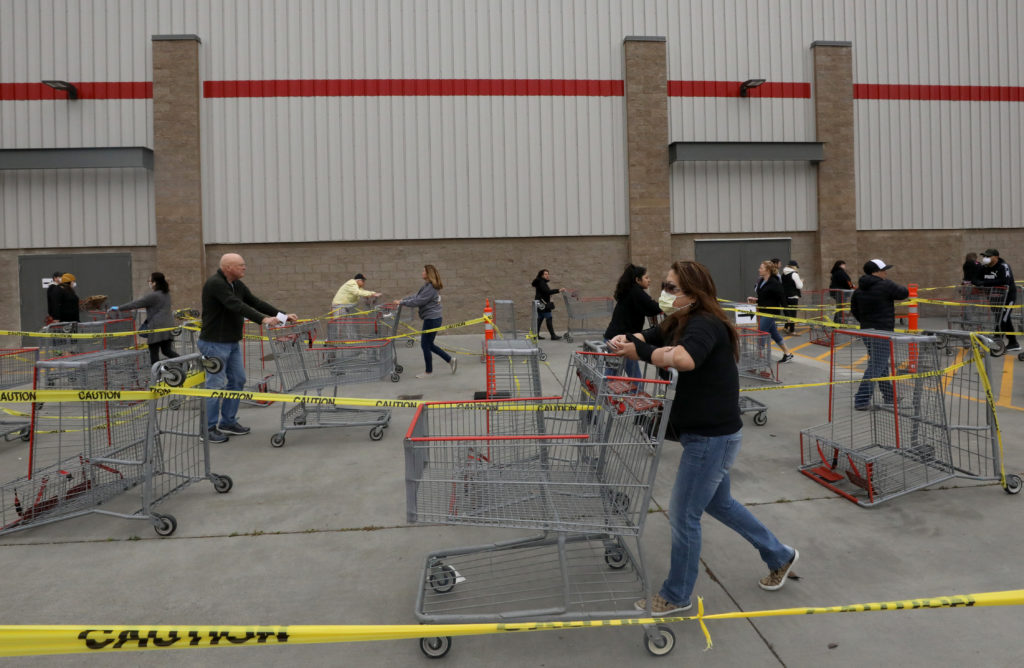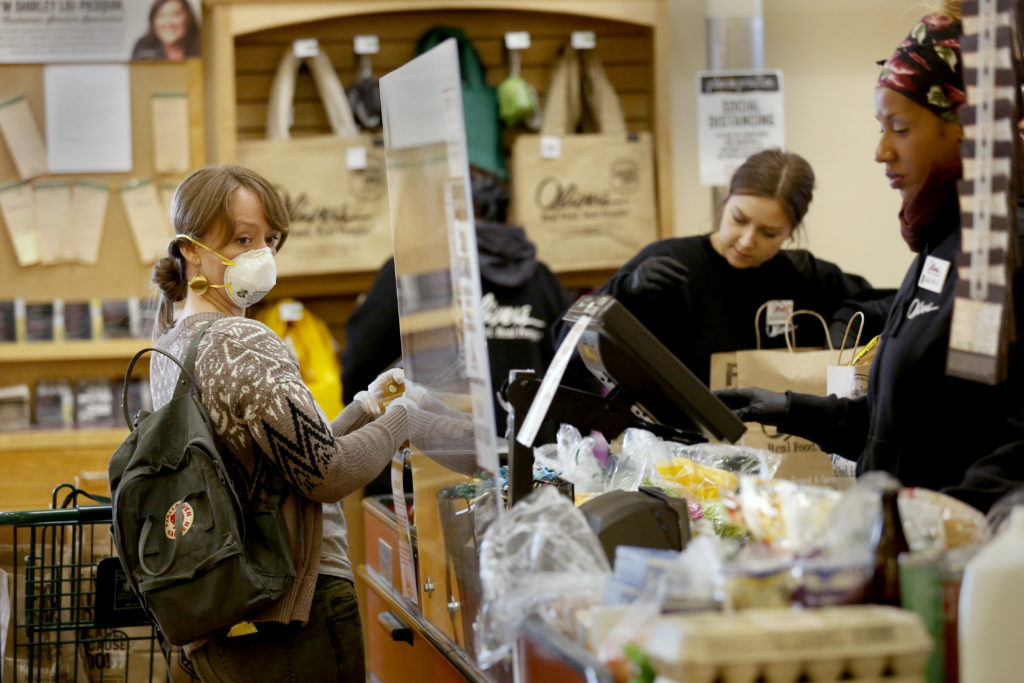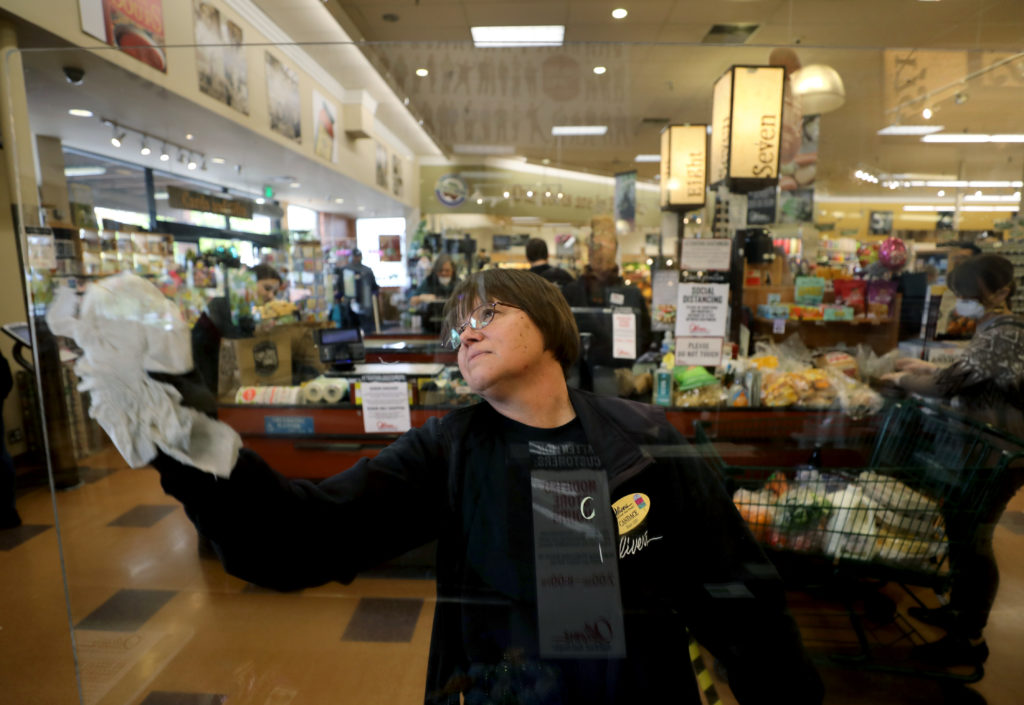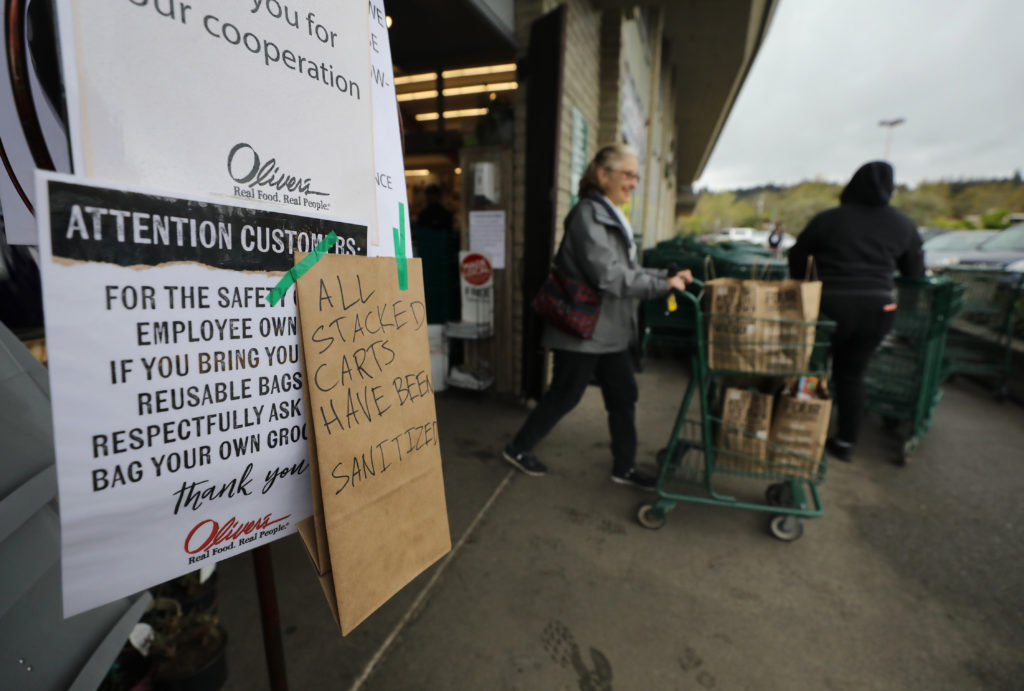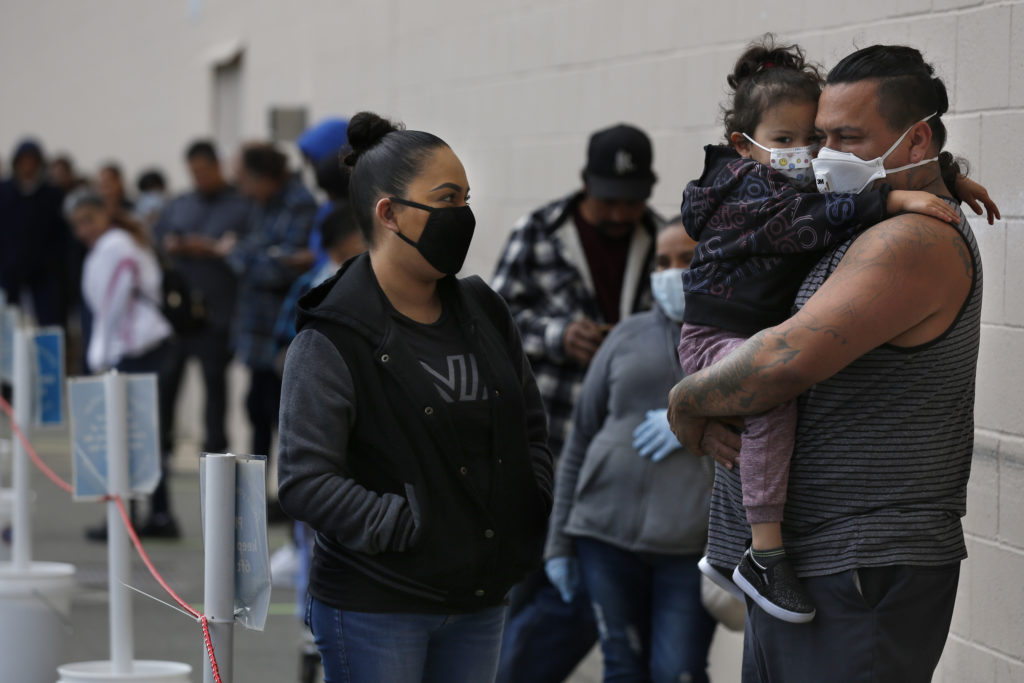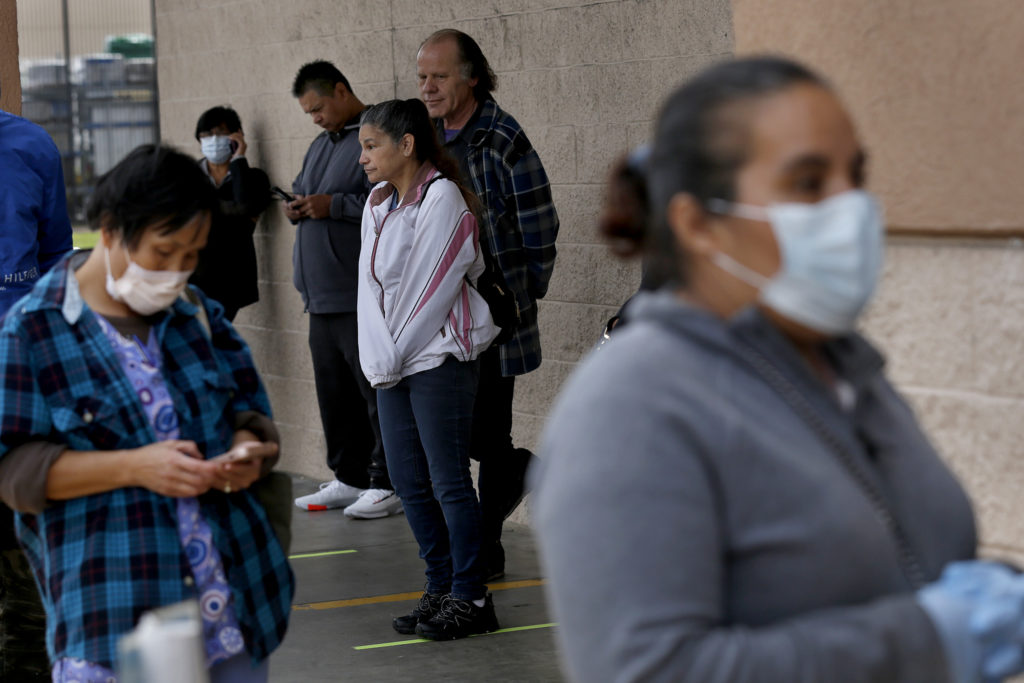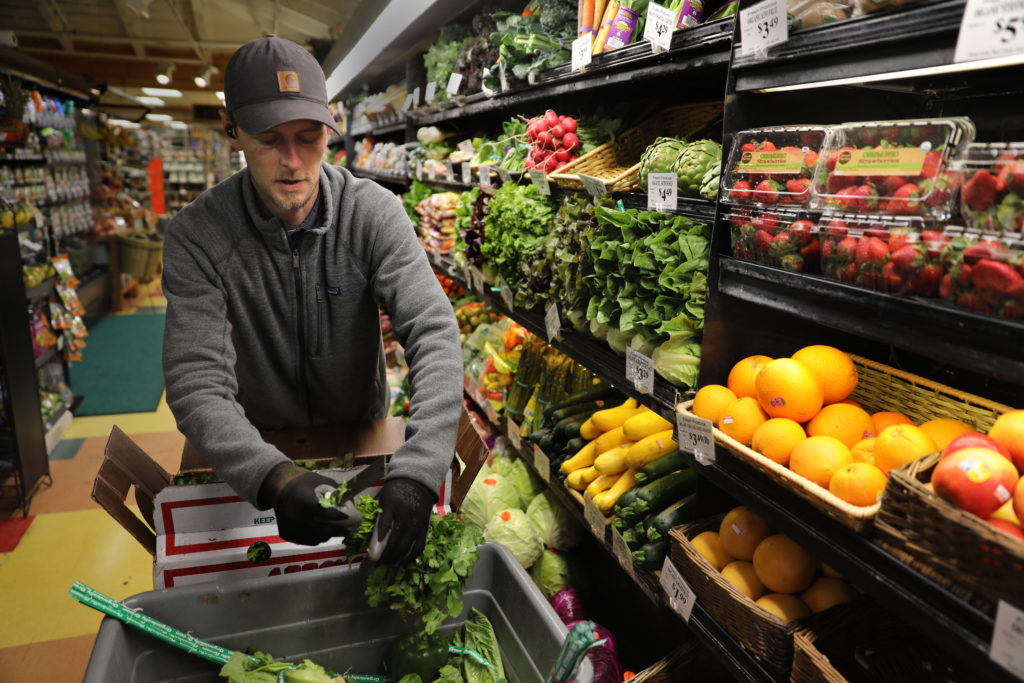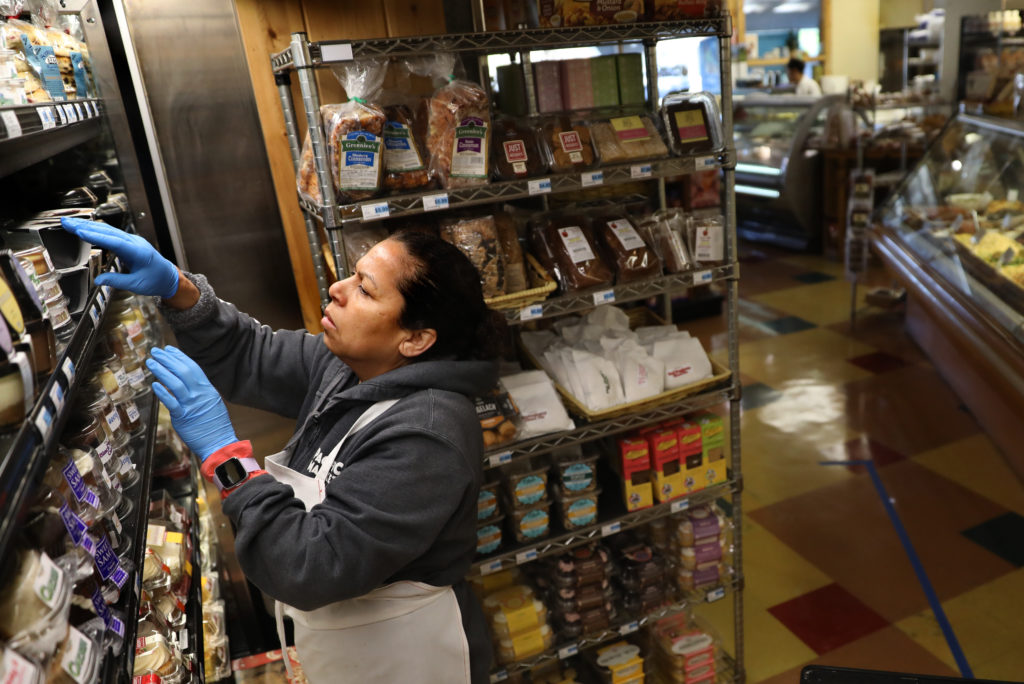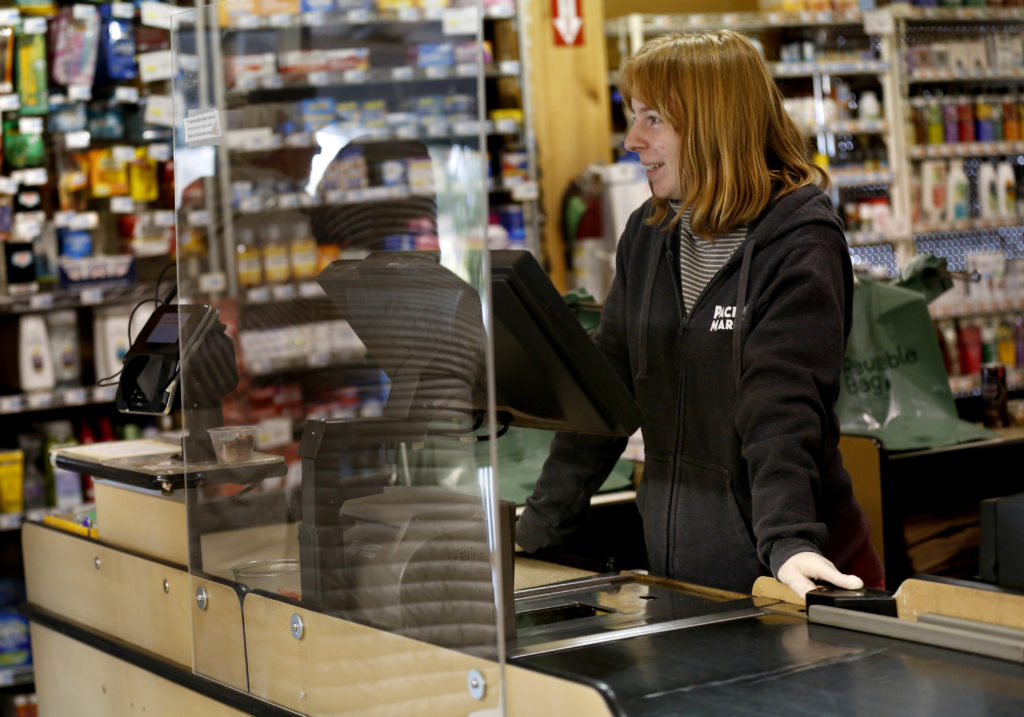According to the current shelter in place order we are to leave our homes solely for the purposes of providing or receiving essential services. While we all still need to feed ourselves, trips to the grocery store are not what they once were before the inception of the coronavirus. With this in mind, we hope that the following advice collected from the County of Sonoma and local grocers may be of help to facilitate your safe food shopping while helping to decrease the spread of COVID-19.
Limit or avoid all trips to the grocery store
Staying home means staying safe and keeping other people safe: plan ahead by making a detailed list of your food needs. Go to the store only when absolutely necessary. This can be a good time to shop for your pantry and freezer. Try to buy enough food to last for two weeks.
But, you think, what good are grocery lists when many items on your list may be sold out? All the more reason to plan for alternative choices. You can even Google ingredients to see what the world’s collection of recipes can do for the foods you may already have on hand. (Remember to check dates on food items you may have at home. This is not a good time to risk food borne illnesses.)
If you would like to avoid the grocery store all together, several grocery chains — including Safeway and Raley’s — offer no-contact pickup and delivery. Simply order online and pickup your order at a specified parking location in the store’s lot, or have your groceries delivered to your own doorstep. Instacart is another option for home grocery delivery. Because these services are likely to be in high demand right now, make sure to stay on top of your food supply so that you can order a week before you run out.
Wash your hands, wear a mask and don’t touch your face
As of Friday, April 17, Sonoma County residents must cover their faces when they leave their homes, according to an order issued by Dr. Sundari Mase, the county’s health officer.
Residents will be required to wear face coverings when they enter any building other than their home to prevent the spread of the coronavirus. Those caught without a face mask could face misdemeanor charges, which includes a fine. (Here’s where to buy a mask and how to make one.)
Experts also advise shoppers to wash their hands before they shop and immediately after. Soap, water and thorough washing is the gold standard for fighting off viruses. And don’t touch your face (wearing a mask or face covering will help prevent you from doing so).
Most stores provide wipes for cart handles and freezer doors — but it’s also a good idea to bring your own.
Don’t bring the family
During a shelter in place order, any trip outside the home can seem like a potential excursion. But while a family trip to the store may sound appealing, it is not a good idea during the coronavirus pandemic.
Write a shopping list together and then send only one person from each household to the store — this reduces the amount of people in the store, making it easier to maintain social distancing, thus decreasing the risk of getting and spreading the virus.
Go when it is less crowded
As more people are unable to work or are working from home, the natural rhythm of grocery stores has shifted. Still, by and large, there are generally less people early in the morning and later at night. If you arrive at a store which is packed with people, come back at another time. A Google search of a particular store can give you an indication of the current foot traffic in a pop-up box.
Several local grocery stores have implemented seniors-only hours: this is a time for older adults and people with underlying medical conditions to shop away from crowds during the coronavirus pandemic.
You may also consider shopping in a small market close to home to reduce the number of people you’re around.
Keep the distance
Local grocers are finding a need to constantly remind people to pay attention to the 6-foot distancing marks. Let’s help them help us. This includes keeping your distance from grocery store workers.
Grocery clerks, while they go about performing an essential service for us, are particularly exposed during the coronavirus pandemic. Try not to crowd the store personnel when asking about the availability of your favorite ice cream.
Get in and get out
Again, plan your shopping trip in advance. Have a list on hand and keep yourself and grocery workers safe by getting your goods quickly. This is not a time to be browsing the store while googling Ina Garten recipes. The people in the line that wraps around the building will appreciate your quick and efficient shopping efforts.
Treat fresh produce like dog poop
Grab that beautiful kohlrabi using a produce bag as a glove, the same way dog walkers pick up their dogs’ waste. Then turn the bag inside out to contain it. Watch this video from Oliver’s for a demo. And don’t touch items you are not purchasing or contemplate purchasing. If you must knock on that melon, put a bag over your fist. Then knock gently.
Wipe down your debit, credit or membership card
Wipe cards down before and after presenting them to the cashier. When possible, pay with your phone so there’s no exchange with the cashier.
Reusable bags are a new no-no
To fight cross-contamination, stores are not accepting your reusable bags for packing groceries. Those bags that you’ve finally remembered to start bringing, they have to stay home for now.
Consider disinfecting food packaging and washing fresh produce
When you return home, take off your shoes, hang up your coat and wash your hands with soap and water for at least 20 seconds.
Currently there is no evidence to support transmission of COVID-19 associated with food, according to the CDC. It may, however, be possible for a person to contract COVID-19 by touching a surface or object that has the virus on it and then touching their own mouth, nose, or eyes. Unpack your groceries at the door and keep those grocery bags outside to use for garbage or put straight in the recycling. Then use sanitizing wipes or a bleach solution to clean food packaging, or dispose of packaging when possible.
Remember to wash your hands again for 20 seconds after you’ve unpacked your groceries and sanitized packaging.
As always, you should handle and prepare food safely. The FDA recommends following the usual best practices for handling food, such as cooking foods to their proper temperature and washing produce thoroughly.
Really clean up
Once you’re done unpacking your groceries, keep your shoes and outerwear by the door, wipe off surfaces and, if you’re really concerned about getting sick, it might be worth throwing your clothes in the wash and taking a shower.
Thank your grocery workers with your actions
They’re here for us in our time of need. Being cooperative and kind and giving them their 6 to 10 feet of space is a great way to thank them.
Be gentle on yourself
For doing this tiring work of staying safe and keeping other people safe, reward yourself with a binge watch, hot tea or a video chat. Forgive yourself if you haven’t used the lockdown as the chance to take up knitting, study physics or launch your career as a stay-at-home filmmaker. Being vigilant about safety is hard work.
The whole world thanks every one of you for your efforts.



